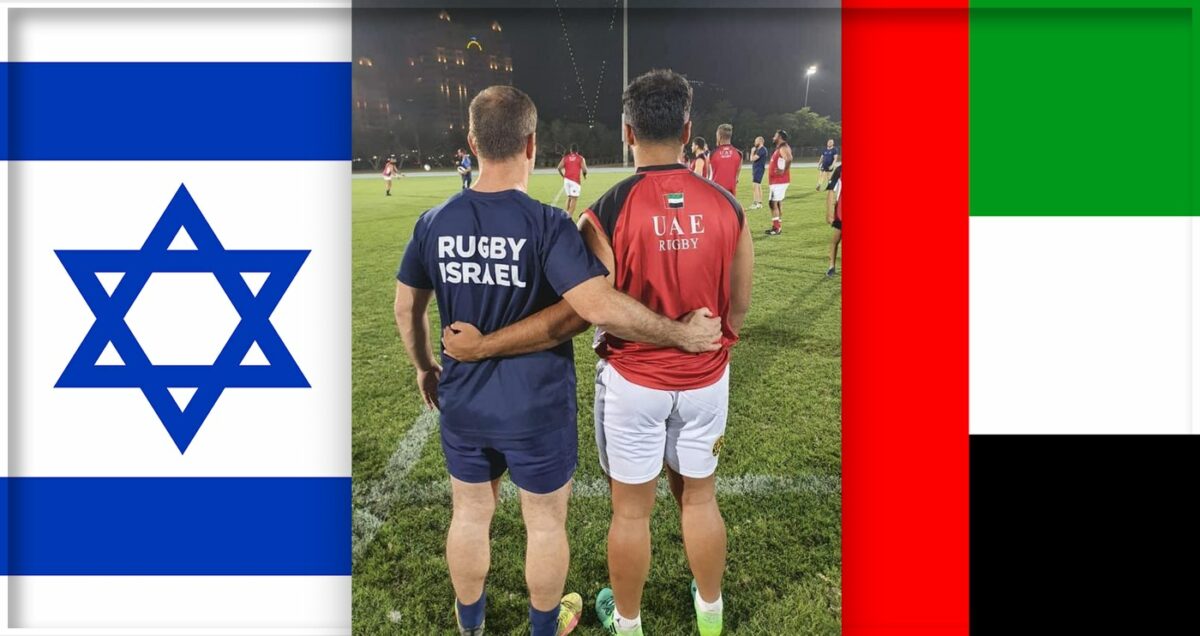South Africa’s late liberation icon Nelson Rolihlahla Mandela famously said “sport has the power to change the world. It has the power to inspire. It has the power to unite people in a way that little else does. It speaks to youth in a language they understand. Sport can create hope where once there was only despair. It is more powerful than government in breaking down racial barriers. It laughs in the face of all types of discrimination.”
Mandela’s sentiments are echoed quite correctly by South African born rugby coach, Kevin Musikanth, who leads the Israeli rugby team. Musikanth strongly believes that sport is a uniting factor which transcends politics. He praises the power of rugby in uniting people, with a shared focus on discipline and building comradery by working together for something greater than oneself.
History was made a late March this year when the national rugby sides of Israel and the United Arab Emirates faced each other for the very first time. This augurs well for the future of peace and stability in the Middle-East.
While politics often tend to divide people, sports have the potential to unite people, including those who do not necessarily follow sports. Sports provide an opportunity for different people to unite across political and racial divides, in the same game.
This historic rugby match was not only about the winner or loser, it was about connecting people from two countries which never had diplomatic ties before. It was about a new culture of engagement. If they are able to play together then they can do business together and strengthen the economies of both countries.
It is worth noting that multitudes of Israelis have visited the United Arab Emirates since the formal signing of the Abraham Accords. The Israeli rugby team also stayed in Dubai after the match, celebrated there and held an outdoor Shabbat ceremony. A peace treaty should not just be a rhetoric, it should be implemented and understood at the ground level. The United Arab Emirates and Israel, since signing the peace agreement, have established diplomatic relations, trade and other viable agreements with shared interests.
In a video tweeted after the match, Israeli President Reuven Rivlin said “While leaders may sign peace agreements, true peace requires people on both sides to build bonds of friendship and cooperation in every arena,” and added that Israel hopes to host the Emirati squad in Israel “very soon”.
Under Nelson Mandela, South Africa devoted its resources to social cohesion which would later be consolidated by the late veteran newsman, Aggrey Klaaste, by introducing the Nation Building initiative when he became the editor of the Sowetan newspaper in 1998.
Nelson Mandela did not only sign a peace treaty (Convention for a Democratic South Africa – known as CODESA) with other politicians, he went further by promoting sports as a way to establish relations amongst various race groups in the country.
Who could forget the late Mandela wearing his long sleeve Springbok shirt, ascending to congratulate the 1995 rugby world champions, Die Bokke. That was just a year after the historic democratic elections of 1994. Rugby and other sports were largely viewed as exclusive and discriminatory until Mandela taught us that we can all play together, and that we can live together in a harmonious society.
According to a report by Inside the Games, Israel and the United Arab Emirates have agreed to sign a cooperation agreement in May 2021 between their respective Karate Federations. This agreement is to cover a number of areas, including training courses and the organisation of mutual training camps, marking the latest sign of diplomacy between the two countries.
Many politicians in South Africa use race cards to get their way. This tactic divides people according to their pigmentation or the language they speak. Today’s leaders of South Africa would do well to learn from the late Nelson Mandela when it comes to uniting people across political divides. The world tennis veteran Venus Williams is reputed to have said “unfortunately the world is what it is now. People don’t get along for whatever reason. As professional athletes, we are almost ambassadors for peace, because sports brings everyone together,” Williams said.

